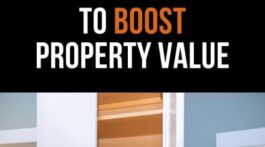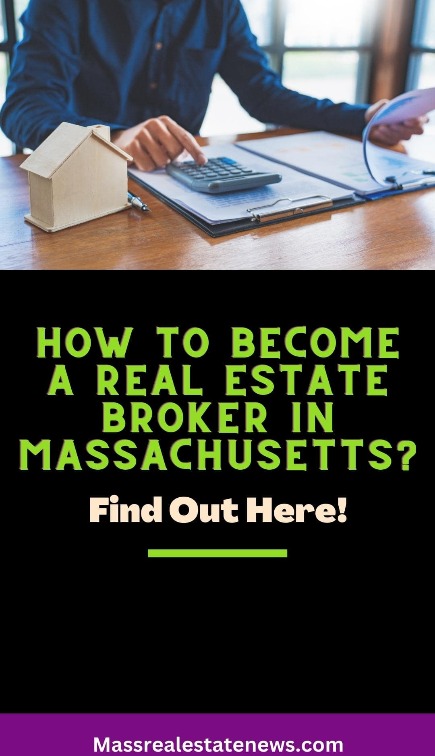Massachusetts is a small state with an intimidating name to spell, a boatload of nicknames, and a booming real estate industry.
The Pilgrim State boasts a real estate market with consistently rising home values and increasing demand thanks to affluent, rapidly-growing cities like Boston and Worcester. Consequently, it’s one of the most lucrative markets for a real estate broker.
But you can’t just wake up one day and start brokering properties in Massachusetts. There’s a process to it. Learn how to become a real estate broker in Massachusetts below.
What Is A Real Estate Broker?
A real estate broker is an REI professional with specialized expertise in the real estate industry.
Like a real estate agent, a real estate broker assists folks in buying and selling homes, negotiating, and overseeing real estate transactions. Most real estate brokers will have a dedicated real estate website to promote their business and the interests of their clients.
However, a broker has additional certifications beyond the standard agent and a real estate broker license to start a firm and hire other real estate agents.
How To Become A Real Estate Broker In Massachusetts
Here’s how to become a real estate broker in MA:
Learn Massachusetts Prerequisites
On top of being lucrative, the Massachusetts real estate market has a low barrier to entry, and anyone, including foreigners to persons with a criminal record, can be a real estate broker. But they must meet the following prerequisites:
- Be 18 years of age and above
- A valid social security number
- Have at least a high school diploma or equivalent
- Prove completion of a pre-licensing exam
- Get affiliated with a licensed Massachusetts real estate broker as an agent for at least three years to gain experience.
Understand The MA Real Estate Market Lingo
Real estate is a people-based industry, and almost 90% of your job as a broker will involve working hand-in-hand with property buyers, sellers, contractors, agents, plumbers, and many other professionals.
Being a good communicator will help you connect better with such individuals, resulting in better client experiences and a good reputation and success.
So, if you want to become not just a real estate broker in MA but a successful one, you’ll need to brush up on your knowledge of its real estate market lingo. For instance, thanks to increased mortgage usage among property buyers, terms like assigned mortgage, balloon mortgage, ARM, and adjustment rights fly around a lot.
You must break them down to lingo an average joe can comprehend. This way, they’ll make better decisions, thank you for it, and likely refer you to other clients. Other typical MA real estate market lingo include:
- Air rights
- Abstract of title
- Addendum
- Active contingent listing
- Acceleration clause
- Amortization
- Automated underwriting
- Appraiser
- Broker
- Closing Cost Credit
- Comparative Market Analysis
- Dual Agency
- Easement
- Escalation clause
- First right of refusal in real estate contracts
- iBuyer
- Private Mortgage Insurance
- Special Assessment
- Short Sale
- Title Insurance
- Use and Occupancy Agreement
Complete Pre-Licensed Broker Education Course (40 Hours)
A better way to enhance your knowledge of the MA real estate market is to complete the pre-licensed broker education course approved by the state.
Although it’s also a prerequisite, the 40-hour course doesn’t just qualify you for a broker license. It also helps you learn the general principles of property ownership, real estate contracts, the various land use controls and regulations in Massachusetts, and the duties and powers of real estate brokers, among other topics.
This better prepares you for the challenging world of real estate waiting for you.
One can take the course either online or in person, and with most approved programs, the 40-hour course duration is typically divided into two.
Pass the Final Exam for the 40-Hour Course
Paying attention to the pre-licensing 40-hour course is non-negotiable because you must complete and pass the final exam at the end of it. One can’t cheat their way into the exam room either because you must send completed course paperwork and an application to the Massachusetts Real Estate Board before being approved to sit for the test.
The test typically contains 120, 80 national-level questions, and 40 related explicitly to Massachusetts. Applicants must score at least 70% to pass. Examinees are allowed four hours to complete and get an immediate score, meaning they go home knowing their fate.
You must carry two forms of identification with similar details: an SSN card and a driver’s license.
Obtain or Fill Out the Required Brokerage Forms
Once you ace the Massachusetts real estate test, cover the licensing fee (usually between $140 and $200), and complete the necessary forms, you’re ready to get your license.
What to Expect After Getting Your Broker’s License?
Getting a real estate broker’s license is a big deal. It means you can soon start your brokerage. However, before you get there, Massachusetts requires you to work under a sponsoring broker for at least three years to gain experience and affiliate the license. To choose a good brokerage, consider:
- The type of brokerage: options include national franchise, boutique, and virtual real estate brokerages
- Whether to go solo or join a team when you join in (going solo is much work but means more commission)
- Commission plans offered
- Brokerage reputation
- Culture
- Office setup
Besides working with an affiliated brokerage, licensed real estate brokers in Massachusetts must take 12 hours of continued education every two years to renew their passports.
How Much Does It Cost To Become A Broker In MA?
Now, let’s talk numbers. How much should an aspiring real estate broker in Massachusetts set aside? Here are the initial costs involved:
Pre-licensing course classes: This is the first and main cost for a real estate broker license in Massachusetts. Depending on the authorized real estate school you enroll in, it might cost anywhere between $230 and $400.
Test exam application + exam fee: To take the licensing exam, one must pay a $52 fee when scheduling the exam. There’s an additional $31 exam application fee as well. If you need to retake the exam, it’ll cost you $54.
License fee: If you pass the exam, you must pay between $103 and $150 for licensing and an extra $12 for license processing.
Surety bond: A surety bond is a licensing cost unique to real estate brokers. To get licensed and practice as a broker in Massachusetts, one must post this bond, usually $5000, to safeguard the interests of the clients and the state.
Ongoing costs of being a real estate broker in Massachusetts include:
- License renewal: about $142 after every two years
- Continuing education: anywhere from $40 to 130.
Other Ways To Get Involved With Real Estate In Massachusetts
A real estate broker license in Massachusetts will significantly expand your career possibilities. However, there are other ways to tap into the real estate market in The Old Colony State before you get licensed. These include:
House Flipping
Also known as property flipping, finding cheap houses to flip is a rewarding real estate investment strategy. It involves purchasing properties in poor condition, renovating them, and reselling them at a higher price for profit. It’s flexible and requires no license or degrees, meaning as long as you’ve got the capital, you can begin to flip houses anytime.
However, it’s essential to note that house flipping mistakes are common for beginning investors. You can quickly lose tens of thousands of dollars if you’re not careful.
Wholesaling
Need a real estate investment strategy with little to no capital requirements? How to wholesale real estate in Massachusetts fits the bill. It’s an investing strategy in which an investor (the wholesaler) acquires a property contract from a property seller (owner or seller agent) and resells it to an end buyer. That means the wholesaler doesn’t acquire ownership of the property.
They earn contract rights and profit from reselling it to the end buyer at a higher price. Wholesaling real estate doesn’t require upfront capital; instead, one must find a motivated seller and an interested buyer for their contract. Properties sold in wholesaling are typically distressed, while most buyers are often other investors, such as house flippers.
Final Thoughts
Massachusetts boasts one of the country’s most lucrative real estate markets. Getting a broker‘s license lets you explore all possible money-making opportunities that await you here. Even better, acquiring a license in this state is no rocket science.
The only hurdle you need to overcome is the licensing exams. Before becoming an officially licensed broker, you may pursue other interests, such as becoming a wholesaler, to familiarize yourself with the real estate market.
 About the author: The above article on how to become a real estate broker in Massachusetts was written by Ryan Zomorodi. Ryan is the Co-Founder and COO of RealEstateSkills.com, a real estate investing education platform that has trained thousands of students nationwide to start and grow real estate investing businesses.
About the author: The above article on how to become a real estate broker in Massachusetts was written by Ryan Zomorodi. Ryan is the Co-Founder and COO of RealEstateSkills.com, a real estate investing education platform that has trained thousands of students nationwide to start and grow real estate investing businesses.










No Comment